A Gift from Payton and
his Pals
Payton’s Pals has donated $50,000 to the Department of Pediatrics
for research on a genetic disease that strikes one in 6,000 babies and
is often fatal in half of them before their second birthday. The Broward-based
nonprofit volunteer organization was started by Debbie Freeman of Margate,
after her son Payton was diagnosed with spinal muscular atrophy.
![]()
![]()
![]()
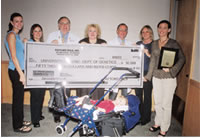
![]()
![]()
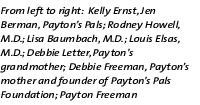
![]()
![]()
![]()
The disease affects a child’s muscular development, and Payton suffers from the most severe form, Type 1. Payton, who was diagnosed at two months of age, is now three years old and struggles daily for survival.
The Dr. John T. Macdonald Center for Medical Genetics in the Department
of Pediatrics will use the money to establish a DNA testing program
for the disease.
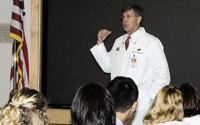 |
||
The students will typically do coursework and lab rotations for about a year and a half before selecting a dissertation mentor..
Pediatrician Talks to the NAACP About Cultural
Competency
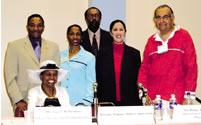 |
||
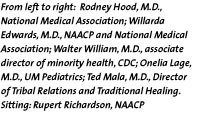 |
||
Onelia Lage, M.D., assistant professor of clinical pediatrics, served as a health workshop panelist at the 94th annual convention of the NAACP on Miami Beach in July. Dr. Lage addressed the issue of cultural competence in the Hispanic community, as a representative of the National Hispanic Medical Association. She says it is important that all health care providers understand the differences among minority groups. “For instance, when it comes to making certain medical decisions, in the Hispanic community it becomes a family decision with parents, grandparents, and children getting involved, whereas in the Anglo community it might just be the patient deciding for his or her self,” Lage says .